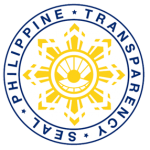Baled rice straw can provide farmers additional income

Dairy buffalo farmers can now look forward to additional income with the projected distribution of 11 rice straw baler machines recently acquired by the Philippine Carabao Center (PCC) from Thailand. The machines can compress hay, rice straw, silage and other raked crops into tightly-packed, easily transportable rectangular or cylindrical bales that can be sold to […]
PCC launches “Businessing the Carabao” book

The Philippine Carabao Center (PCC) will be launching another book about the carabao that highlights its significant role in boosting the Philippine economy. The book launch will be held during the agencys 18th anniversary celebration on March 25. Titled “Businessing the Carabao”, the book is written by veteran development journalist and PCC editorial consultant Dr. […]
PCC taps TAP for technology commercialization

The Philippine Carabao Center’s Technology Board summoned the urgency for the application of Technology Assessment Protocol (TAP) toward further technology promotion and commercialization. As a concrete step for its realization, the board headed by Dr. Eric P. Palacpac, along with selected staff members of PCC, participated in a four-day training on the use of TAP […]
PCC at MMSU gets ISO certification

The Philippine Carabao Center at Mariano Marcos State University (PCC at MMSU) based at Batac City, Ilocos Norte, is now ISO 9001:2008-certified and is also the first regional center of PCC recommended for certification that was confirmed on March 2. According to Minda R. Diloy, PCC Quality Management Representative, the regional center has “completely conformed […]











